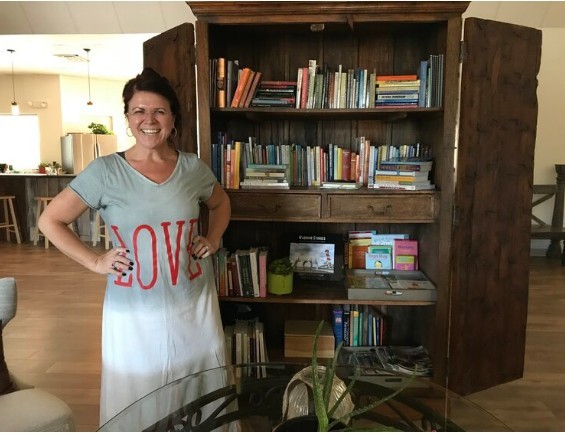(0:01) Hello friends welcome to Be Well podcast!
(0:05) My name is Kelsy Timas. I am the CEO and founder of Guiding Wellness Institute. And among other things, that I get to spend my time doing every day, one of my most favorite things is writing the Live Well magazine, and offering bits of support to you, our listeners, and also supporting our international community of clients and students abroad.
So, today, one of the things that I was asked to touch on, was an article that we have actually in the current Live Well Magazine called “What Is Resilience?”, and resilience is kind of a buzzword. As someone who works a lot with the military and first responders, that’s definitely been a focus. We actually have a program performance: resilience and recovery, because we really believe that the level of resilience that you’re able to achieve in life has a lot to do with how much you prepare and train, and the type of recovery protocol that you have, and that resilience can be lost when either our preparedness or our recovery is lacking a certain element.
So, there’s just been a lot of questions about that. And I thought I would refer actually to this article that I wrote for the Winter edition, that defines resilience, that our resilience is not measured by our toughness, or our ability to be undisturbed by the world around us. So, that’s a common misconception is that resilience means that you’re unaffected by what’s happening around you or to you. And that is just simply not true.
Our resilience is actually measured by our capacity to recover quickly from difficulties. And that’s actually how it’s classically defined. So, how quickly do we come back to balance after the experience of stress?
And stress is just an ongoing situation of our life, we have our positive and negative stress that is constantly happening. The cumulative stress is actually where a lot of the problem lies– is that we have certain stressors that do not either have a remedy or we don’t know how to file them, and they’re happening rapidly or continuously. And that actually can lead to all of the five chronic illnesses.
There’s a quote from Paulo Coehlo:
“The secret of life, though, is to fall seven times and to get up eight times.”
And you’re probably hearing right now, I have six dogs. So, we’ve got this little tuft, speaking of stress, we’ve got this little banter going on in the background here as one wages for the cookie over the other. So, another common misconception we have, is that we expect ourselves to return to normal, quickly after we have experienced a stressful event or life experience, and this is under an unrealistic expectation. This often leads us to feel dissatisfied with our current states of normalcy, simply because they are new, not because they’re not what they were, but that they are something different than what they were.
So, recovering quickly is not the problem. What we return to is the challenge. So I’m, I’m coaching clients, often, well, every day actually in sessions that we’re always trying to recover from either an illness or a situation or an occurrence to come back to where we were before. And that in itself is the problem, because our cell tissue– our cells are designed literally to move in one direction. We don’t ever go back.
(5:00)
We only progress forward, and so, if my the current state of my cellular DNA and all of my
bio engineered my chromosomes, my enzymes, my whole homeostasis today, experiences in event, the event itself is not really what’s changing, because I’m changing regardless of the event.
So, I might have my attention on the event that’s happening, and I am still progressing and moving forward. Now stress, negative stress and a cumulative stress tend to diminish the rate in which our cells are turning over and that capacity; but that is not as much of a of an issue as our minds attachment to what has happened, what is happening, and then our attachment to coming back, when we can never go back.
So, in the healing process, and then the reset process, and what we measure in our vagal tone as our resilience capacity, is really about being able to shed all the parts of life and the experience that are not serving you; metabolize what is serving you; integrate the experience, meaning the truth of what has actually happened, and then begin again; like can I begin again, fresh and new from this neutral place? Or am I warring with the discrepancy between where I am now, and where I was, when I got pulled into this whole fiasco, or life event or distraction of life?
So, I just encourage you to revisit that concept with yourself and that, you know, change is constant. And every cell in our body is designed to shed this moment and move into the next. And when life gets sticky, we can feel stuck, stuck in the changes of change. But we are meant to change, evolve and transform.
So, let change change you. When we cannot change what has happened in the past, nor control the change coming in the future, then we are left with the choice of being the change we want to see in the moment we find ourselves in. And when we do that we have this character of resilience.
And of course, there’s all these evidence based methods that support resilience or improve resilience, which you know, I’m a huge fan of like yoga and meditation, mindfulness, floatation therapy, we actually conducted research for the military on that modality. And so that I’m a huge advocate for that as well.
So, there’s lots of tools we can use to help us achieve that. But at the end of the day, resilience is about coming back, and not just coming back halfway, but coming all the way back to a place of feeling grounded and centered, and then re engaging the world from that centered place. And when we can do that again and again. Our cell tissue is the most vital our mental capacity or emotional stability. And that sustainability of meeting life where it is, is there.
So, thank you for listening. And that if you want to hear more, learn more about resilience, we have a whole article in the Live Well magazine, the Winter edition, but we also offer appointments and classes every day at The Institute.
So, thank you for tuning in, and I am wishing you much wellness this evening.
Namaste.



